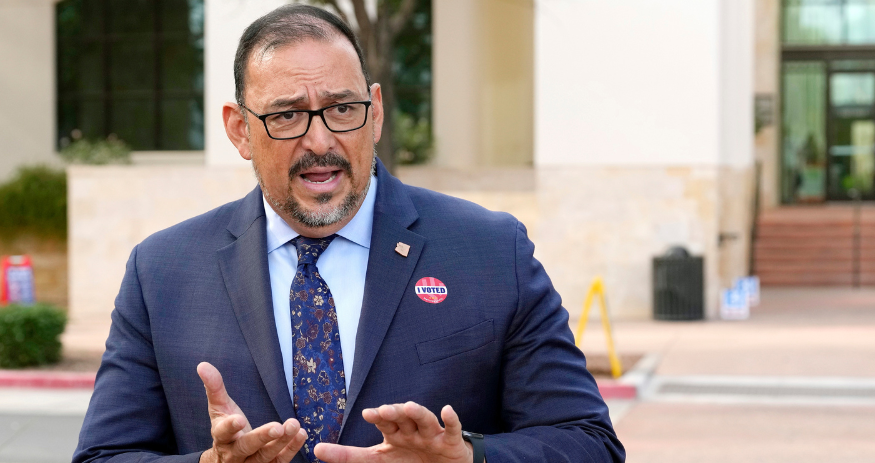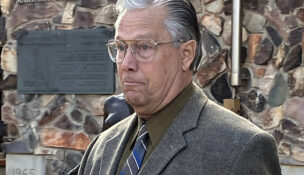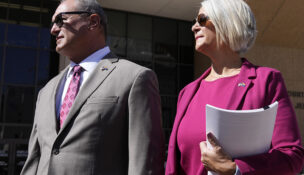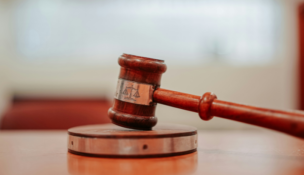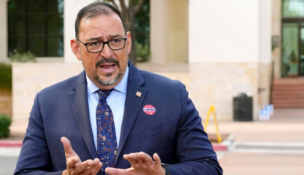Judge orders release of 98,000 names of voters possibly lacking citizenship proof
Howard Fischer, Capitol Media Services//November 2, 2024//[read_meter]
Judge orders release of 98,000 names of voters possibly lacking citizenship proof
Howard Fischer, Capitol Media Services//November 2, 2024//[read_meter]
Secretary of State Adrian Fontes was ordered Thursday to turn over the names he has on a list of registered voters of those who may not have provided proof of citizenship — at least the first 98,000.
In an often strongly worded order, Maricopa County Superior Court Judge Scott Blaney, originally appointed by then-Governor Doug Ducey, said it is clear that the information sought by Stronger Communities Foundation is a public record and subject to disclosure.
Fontes did not dispute that contention. But he argued that he was entitled to withhold the information because there is an exception to the Public Records Law in cases where release would not be in the “best interests of the state.” In fact, the secretary said he would withhold information of that “could save just one life.”
The judge was not convinced, saying there was a “lack of any evidence that any individual life was in danger.”
Blaney also said that neither Fontes nor his office provided any evidence that Stronger Communities, which operates as EZAZ.org, has ever used information it has to harass or intimidate voters, conduct mass voter challengers, or single out voting locations to protect or harass voters.
And the judge said that Fontes provided “inconsistent testimony” on exactly how many people are affected by what has been called a “glitch” in a system used by the Motor Vehicle Division that resulted in questioning whether some people on the current voter rolls have not provided legally required proof of citizenship.
Still, Blaney acknowledged Fontes’ concern that there may not yet be a complete list, with estimates of those affected at one point during the trial earlier this week going as high as 345,000.
So he ordered Fontes to release by noon on Monday that initial list of 98,000, which the secretary finally conceded under questioning in court he does have.
And, acknowledging possible threats, Blaney forbade Stronger Communities from using the list to contact any of the affected voters until after Tuesday’s election. And he also said that until next Wednesday the organization can release copies of that list only to county recorders, the Senate president, the speaker of the House, and members of the Elections committees of the House and Senate.
An aide to Fontes said he was studying the order “and weighting our options as to how to move forward.”
Thursday’s ruling is a victory for Stronger Communities, which says it uses information from voter records to do outreach.
Merissa Hamilton, who chairs the organization, acknowledged that not getting the list until Monday means little could be done ahead of the election the following day to determine if there are people on the list who are actually not citizens. There’s also the fact that more than two million Arizonans already have cast early ballots.
And Hamilton told Capitol Media Services this has never been about trying to block the 98,000 — or however many end up on the final list — from casting ballots this year.
“The super majority of the list are probably citizens,” she said. “But those that aren’t — if that exists in this situation — now have fair warning they will get caught if they try to break our laws.”
What caused this lawsuit is that a 2004 voter-approved law requires proof of citizenship to register.
A separate 1996 law requires proof of legal presence to get an Arizona driver’s license. And based on that, the 2004 law said that anyone who had a license issued since October 1996 was presumed to already have provided that proof.
Those with pre-1996 licenses, however, were required to furnish such proof if they were registering to vote for the first time or if they had moved to another county.
The problem was that MVD was telling counties that some of these people had post-1996 licenses. That’s because its reports listed the last date of any activity, like a change of address or a duplicate license, rather than the original issue date.
Bottom line was that counties, using this mistaken information, registered people who lacked the legally required proof.
By law, anyone without such proof can vote only on races for president and Congress, as federal law does not require citizenship proof.
But the Arizona Supreme Court ruled anyone on the list can vote on any race on the ballot this year, concluding there was no hard evidence anyone on the list actually was not a citizen. More to the point, the justices said they would rather not err on the side of disenfranchising voters, most of whom they believe actually are citizens, so close to the election over a record-keeping problem.
Fontes initially told the Supreme Court there were 98,000 on the list. His most recent press statement put the figure at about 218,000.
All that resulted in Stronger Communities seeking the list.
The group did not cite a reason. And one is not required under the Public Records Law.
And when Fontes refused, it sued.
“The defendants are stonewalling and have unlawfully refused to fulfill it,” the attorney wrote. “Apparently, insulating themselves from embarrassment is more important to the defendants than following the law.”
In attempting to keep the list secret, at least for the time being, Fontes got a professor from the University of Chicago to testify on political violence.
Blaney, however, pointed out that none of his information was specific to Arizona. And the judge said the professor was guilty of “gratuitous political bias in his report and in his testimony.”
That left Fontes and his own testimony which included disclosing he wears a bullet-proof vest and has personal security. And the secretary said while he had no evidence that Stronger Arizona would use the list to harm voters, he feared what would happen when others get the information — at least while the election is pending and there are threats from some quarters to hang people for tyranny.
“I don’t want blood on my hands,” he said.
None of that convinced Blaney to allow Fontes or his office to keep the list secret.
“Although the defendants provided testimony as to generalized political threats in the current environment, they did not provide any evidence that (EZAZ.org) has or will engage in activities that would jeopardize the safety, security, or voting rights of Arizonans,” the judge said. In fact, he said, the evidence is to the contrary.
He pointed out the group has obtained, under public records law, a separate list of about 42,000 “federal only” voters. These are people who clearly have not provided the state-required documentary proof of citizenship, meaning they can vote only in the presidential and congressional races.
Blaney said EZAZ.org “has not been implicated in any violations in the privacy of confidentiality rights of those voters.”
“EZAZ.org provided unrebutted specific, credible evidence that it carefully vets and trains members, encourages a friendly environment, and has been a good steward of private information, including the federal only voter list at its disposal,” the judge wrote.
Allowing EZAZ to provide the list to lawmakers also came over Fontes’ objections.
“I know that various members of the Legislature have lied, have continued to lie,” he told Blaney at the hearing earlier this week, though he did not name names.
“And I don’t see any of them stopping a lot of these lies and assisting a lot of the folks who are fomenting the divisiveness that we have in our society for their own personal or political gain,” Fontes said. “So, yeah, I’m going to fight like hell to keep a lot of those folks from having these lists.”
Blaney said that amounted to Fontes saying that lawmakers would provide the list to outsiders “with the specific intent to encourage third party groups to engage in violent or harassing behavior, resulting in possible injury or death.”
“The secretary’s claims were not credible and not supported by the evidence,” the judge said.
Perhaps the most significant part of Blaney’s ruling, separate and apart from this specific fight, is his conclusion that the exceptions in the Public Records Law are narrow.
He rejected Fontes’ contention the information should not be made public because the list is still not complete.
“An agency cannot withhold records because it believes that these records contain imperfect or unreliable information,” Blaney wrote. “Indeed, when public agencies make mistakes, the public has an even greater interest in the disclosure of such information.”
And he took a particular swat at Fontes for his claim that he can withhold the information if it would save just one life.
“If the court were to adopt this standard — that a public official may withhold public records whenever he subjectively believes such withholding could somehow ‘save even one life’ — the court would be adopting an impermissibly broad, arbitrary standard where the ‘best interest of the state’ exception swallows the entirely of the Arizona Public Records law,” Blaney wrote.

